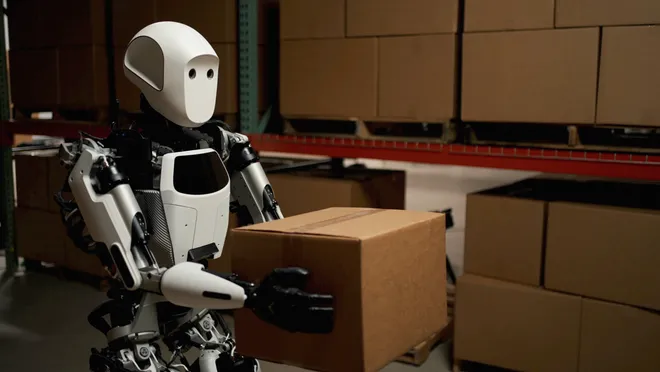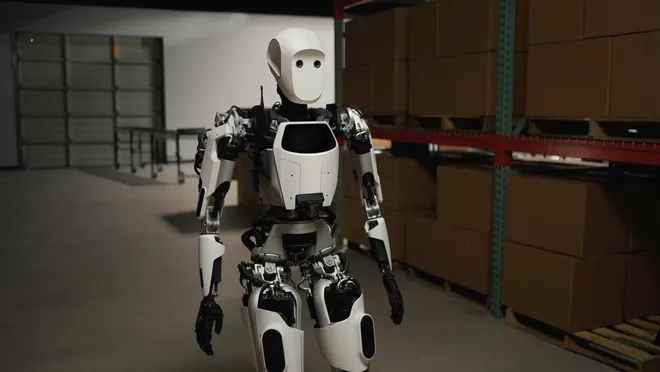In a groundbreaking development, the potential integration of robots into the workforce takes a tangible step forward with the launch of the humanoid robot named ‘Apollo’ by Austin-based robotics firm Apptronik.
Previously the stuff of science fiction and film, the concept of human-like robots living and working among us is becoming a reality, ushering in a new era of automation and collaboration.
Apptronik’s CEO, Jeff Cardenas, established the company in 2016, originating from the Human Centered Robotics Lab at the University of Texas. With a vision to reshape work dynamics and daily life, Apptronik has grown into a team of 85 experts, with plans to expand further.
Apollo, a versatile humanoid general-purpose robot, was recently unveiled at a discreet event during the South by Southwest festival, before receiving its official public introduction. Apptronik is currently testing Apollo with a select group of clients, aiming for a full-scale commercial launch by the end of the next year.

Standing at 5 feet, 8 inches and weighing approximately 160 pounds, Apollo’s remarkable abilities include lifting and transporting packages, tasks particularly suited for warehousing and manufacturing sectors. However, the potential applications of Apollo extend to a diverse array of industries, spanning construction, electronics production, oil and gas, elder care, retail, and home delivery.
This innovative robot is designed with a human-centric approach, emphasizing seamless cooperation between humans and machines. Apollo’s operational flexibility enables it to be controlled through Apptronik’s software via a tablet. Users can program specific tasks, and Apollo autonomously executes them, displaying its ongoing task on a screen affixed to its chest.
Cardenas envisions Apollo as a transformative tool capable of performing a multitude of tasks across industries. Moreover, the robot’s adaptable mobility and four-hour swappable battery provide additional operational flexibility.
One of Apollo’s key features is its ability to ensure safety around humans. Equipped with cameras, the robot can detect human presence and adjust its speed accordingly. It can also navigate unexpected obstacles.
Apptronik’s visionary CEO perceives Apollo as the equivalent of the “iPhone of robots,” proficient in a multitude of functions. While there are concerns regarding the displacement of human jobs, Cardenas believes that robots can tackle mundane and risky tasks, freeing up human workers to focus on more intricate and creative aspects of their jobs.
Furthermore, Apptronik’s collaboration with NASA opens doors to the use of humanoid robots in space missions, potentially paving the way for human settlement on the moon and Mars. The partnership aims to employ humanoid robots in tasks that are dangerous for humans, both on Earth and in outer space.
In sum, the introduction of Apptronik’s Apollo underscores a significant milestone in the integration of humanoid robots into our daily lives and industries. As these robots take their place alongside human colleagues, their potential to enhance productivity, safety, and exploration is poised to reshape the future of work and beyond.
Disclaimer: The views, suggestions, and opinions expressed here are the sole responsibility of the experts. No Press Echo 360 journalist was involved in the writing and production of this article.

